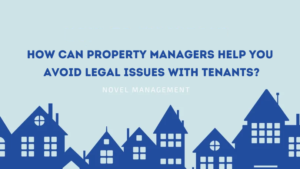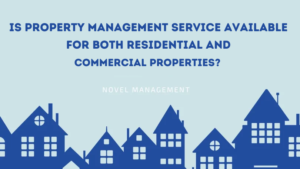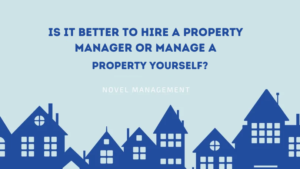Evictions can be challenging and require a clear understanding of Florida’s landlord-tenant laws and procedures. This article is tailored to provide landlords with essential information, guiding them through each step of the Florida eviction process. From understanding the legal grounds to filing an eviction lawsuit and handling legal proceedings, we aim to equip you with the knowledge needed to navigate this process smoothly and legally.
What is an Eviction
An eviction under Florida law is a legal process that involves several steps, beginning with the Florida landlord issuing a written notice to the tenant. This eviction notice varies based on the reason for eviction, such as non-payment of rent or lease violations. If the tenant fails to resolve the issue, the landlord can file a complaint in court. Make sure that none of the reasons for the eviction violate a tenant’s Fair Housing rights.
The court then serves the tenant with a Summons and Complaint, leading to a court hearing. If the judgment favors the landlord, a Writ of Possession is issued by the sheriff, who then enforces the eviction. This process typically takes between a few weeks but may extend if tenants contest the eviction or due to court backlog or complexity of the case.
Legal Reasons for Eviction in Florida
Under Florida law, a landlord can only evict a tenant for legitimate reasons. These include:

- Non-payment of Rent: This is one of the most straightforward grounds for eviction. If a tenant fails to pay rent as agreed, the landlord has the legal right to initiate the eviction process.
- Violation of Lease Terms: Any breaches of the lease agreement, such as unauthorized pets, failure to maintain the property or pay rent, or other lease violations, provide grounds for eviction.
- Lease Expiration or No Lease: Tenants who stay beyond their lease term without renewing it or those on an expired lease or rental agreement can be evicted with proper notice.
- Substantial Property Damage: Tenants who cause significant damage to the property can be evicted. If the damage goes beyond normal wear and tear, Florida landlords can use the tenant’s security deposit to cover the cost of repairs.
Eviction Notice Requirements and Cure Periods
The type of Florida eviction notice a landlord must provide depends on the reason to evict tenants:
- Rent Nonpayment: A 3-day notice period is required, offering a chance to pay the overdue rent or vacate.
- Lease Ends /No Lease Agreement: A 15-day written notice is required for month-to-month tenancies or those without a formal lease.
- Lease Violations: These 7-day Florida eviction notices give the tenant time to rectify the lease agreement violation or leave.
- Major Property Damage/Repeated Violations: A 7-day notice is issued for severe damages or repeat violations, without an option to rectify.
Eviction Process in Florida
Here are the essential steps of the eviction process in Florida:

Serving Notice to Tenant
This is the first step according to eviction laws where the landlord informs the tenant that they are being evicted. According to Florida eviction laws, the landlord gives the tenant a written notice. The method of delivering this notice can vary—it can be given directly to the tenant, or someone living with them, or it might be posted on the rental unit and also sent by mail.
Court Filing and Eviction Lawsuit Process
If the tenant doesn’t resolve the issue or move out by the deadline given in the eviction notice, the landlord can go to court. The landlord files a complaint at the local court, providing details like why they are evicting the tenant, and when they served the notice. This starts the legal part of the eviction.
Tenant Summons and Response
After the landlord files the complaint, the Florida Small Claims Court sends a Summons and Complaint to the tenant. This informs tenants of the Florida eviction lawsuit and gives them a chance to respond. The tenant has five days to reply in writing if they want to fight the eviction.
Court Hearing and Judgment
If the tenant contests the eviction, the court will schedule a hearing. Both the landlord and tenant need to go to this eviction hearing. The tenant and landlord can bring evidence, like the lease agreement or photos of the rental unit, to support their case.

If the tenant doesn’t respond to the summons, the court is likely to decide in favor of the landlord. The judge will listen to both sides and then make a decision. If the judge decides the Florida tenant should be evicted, they’ll issue a Judgement for Possession.
Finalizing Evictions
Once the court decides in favor of the landlord, a Writ of Possession is issued. This is given to the sheriff, who then goes to the rental property and posts a notice telling the tenant they have 24 hours to leave. If the tenant doesn’t leave, the sheriff has the authority to remove them.
Costs of Eviction in Florida
Evicting a tenant in the state of Florida involves various fees, including filing fees, the cost of serving the summons, and fees for the Writ of Possession. It should be noted that these fees can vary by county. There might also be other optional costs, like if the landlord decides to appeal the court’s decision.
Bottom Line
Navigating the eviction process in Florida can be a complex and daunting task for landlords and property owners. While this guide aims to provide a comprehensive overview, each situation has its unique challenges. Florida landlords must also ensure that they adhere to lease termination policies, Fair Housing Laws, and other landlord-tenant laws. To ensure a smooth and legally compliant process, consider enlisting the expertise of a property management company.
Novel Management, with our extensive experience and personalized approach, can be an invaluable partner in managing your property effectively. By choosing our property managers, you can rest assured that your property and tenants are in capable hands, freeing you to focus on other important aspects of your real estate investment.
Disclaimer: Please note that the information provided in this blog is intended for general guidance and should not be considered as a replacement for professional legal advice. It is important to be aware that laws about property management may change, rendering this information outdated by the time you read it.




